You hear some voices. Others remain, quietly resonating while you clean, drive, or fall asleep. Some narrators in the growing field of podcasting have such a strong emotional impact that they become ingrained in your mind. It’s more than just storytelling; it’s companionship interwoven with remarkably alive frequencies and pauses.
Consider the nearly legendary narration of Dr. Death and Sympathy Pains by Laura Beil. Her tone is profoundly deliberate rather than theatrical. She guides rather than performs. Her empathy is evident in every sentence, which seems to have been thoughtfully constructed. Her voice is frequently characterized by listeners as “achingly human” and “calmly investigative.” Her episodes have become modern audio classics because of this blend, which is especially effective because it strikes a balance between tenderness and truth.
| Aspect | Details |
|---|---|
| Central Idea | The deep emotional bond listeners form with distinct podcast voices and storytelling styles |
| Prominent Figures | Laura Beil (Dr. Death), Julia Louis-Dreyfus (Wiser Than Me), Dave Cawley (Cold), Wedson Msoni (Underestimated Voices) |
| Popular Genres | True crime, self-improvement, comedy, reflective storytelling |
| Emotional Effect | Comfort, familiarity, and shared vulnerability between host and listener |
| Cultural Trend | Growing preference for authenticity and slow conversation over performance |
| Psychological Layer | Perceived intimacy through tone, pacing, and vocal sincerity |
Cold by Dave Cawley offers something just as profound. His slow, deliberate, and eerily accurate delivery creates a rhythm that reflects introspection rather than reporting. He draws the audience into silence rather than spectacle by telling the story sparingly. Online fans frequently acknowledge that they “hear his voice even after the story ends.” That is the hallmark of a storyteller who transforms journalism into memory by evoking strong feelings in addition to providing information.
Julia Louis-Dreyfus takes a different, but remarkably similar, emotional approach to podcasting. Her discussions with women such as Diane von Furstenberg, Julie Andrews, and Jane Goodall in Wiser Than Me go beyond celebrity interviews. They turn into dynamic repositories of knowledge. Julia seems particularly present because of her laugh, her hesitancy before asking a question, and even her lighthearted interruptions. Her tone, which is incredibly open and honest, crosses the generational divide and turns conversation into a bond.
The new era of voice-based storytelling is characterized by this intimacy, which feels spontaneous but is purposefully constructed. Podcasts, in contrast to television, rely solely on tone to establish credibility. A sigh turns into punctuation; a pause into a paragraph. Particularly inventive is this art of silence, which forges a lasting and genuine connection between host and listener.
Underestimated Voices by Wedson Msoni embodies the spiritual core of this metamorphosis. Every episode of his podcast, which is based on themes of resiliency and renewal, serves as a silent sermon for the soul. He has a prayerful rhythm when he talks about rejection, identity, or hope. With good reason, listeners refer to it as “audio therapy.” His stories all seem to be intended to serve as a reminder of one’s own value and the profoundly empowering power that comes with being vulnerable.
Podcasts like Wiser Than Me and Everything Happens with Kate Bowler, on the other hand, represent a vital counterculture to the weariness of digital technology. Instead of dopamine-fueled chatter, these shows offer thoughtful reflection and substitute calm for chaos. Bowler reminds audiences that dialogue can still be sacred with her trembling yet remarkably clear tone, which is shaped by her experience with illness and faith. In an era of constant distraction, her genuineness redefines what meaningful communication sounds like.
It’s interesting that data backs up this change. According to Spotify’s 2025 analytics, “reflective storytelling” podcasts experienced a notable increase in replay rates, rising by almost 45% annually. This pattern implies that people are actively looking for connection rather than merely listening for background noise. That desire for emotional consistency is especially telling during a period when attention seems to be divided.
These days, presence is more important than merely telling stories. Listeners are looking for real, unphony companionship. They are drawn to hosts who are honest about their flaws—voices that tremble, laugh out of the blue, or hesitate before making a tough confession. Some podcasts are especially human because of these nuances, which are frequently missed by producers who strive for perfection.
Additionally, a larger cultural shift toward emotional authenticity is reflected in the phenomenon. Our cultural vocabulary is moving toward softness, from Phoebe Bridgers’ melancholic delivery to Billie Eilish’s whispered confessions. Listeners now associate vulnerability with strength rather than loudness with confidence. This analogy between podcasting and music demonstrates how empathy, not ego, is redefining a generation.
This is the case even with celebrity-driven podcasts. Wiser Than Me was once defined by Julia Louis-Dreyfus as “an act of listening more than speaking.” That idea, which is incredibly straightforward but profoundly applicable, could easily be the tenet of contemporary digital storytelling. It recasts the podcaster as a companion, someone who occupies space rather than fills it, rather than as a performer.
This change is reflected in voices such as Beil’s, Cawley’s, or Msoni’s. They are cultivating attention rather than attempting to control it. Because loyalty feels earned rather than forced, their genuineness is incredibly effective at fostering it. When listeners characterize a host’s voice as “safe” or “comforting,” it’s not about celebrity; rather, it’s about trust that is established through tone and consistency.
There are wider societal ramifications to this emotional resilience. It demonstrates our shared desire for voices that help us navigate uncertainty. These voices serve as anchors, reminding us that empathy is still the most potent form of connection, even in the midst of chaos, whether they are those of inquisitive reporters or thoughtful thinkers.
Maybe that’s why podcasts have become the music for contemporary loneliness. They turn isolated moments into shared experiences by going on walks, long drives, and restless nights. The closeness is both universal and intimate. These voices persist, quietly, like the gentle hum of a friend’s comfort.
In the end, Voices That Linger is about emotion more than content. It’s about the people behind microphones who remind us of our common humanity with their extraordinary sincerity and creative restraint. Their voices endure—familiar, dependable, and subtly transforming—but their words fade.
